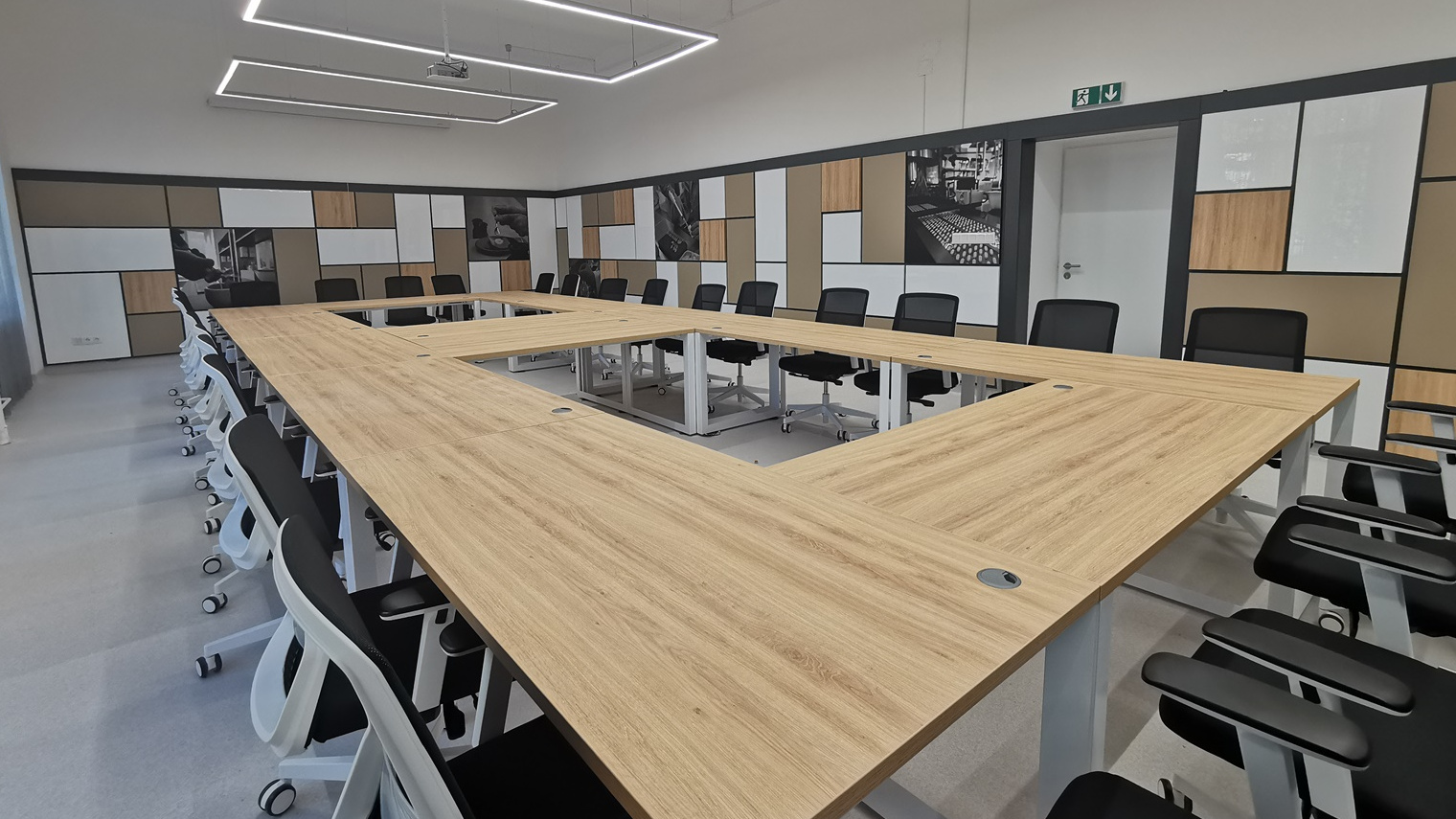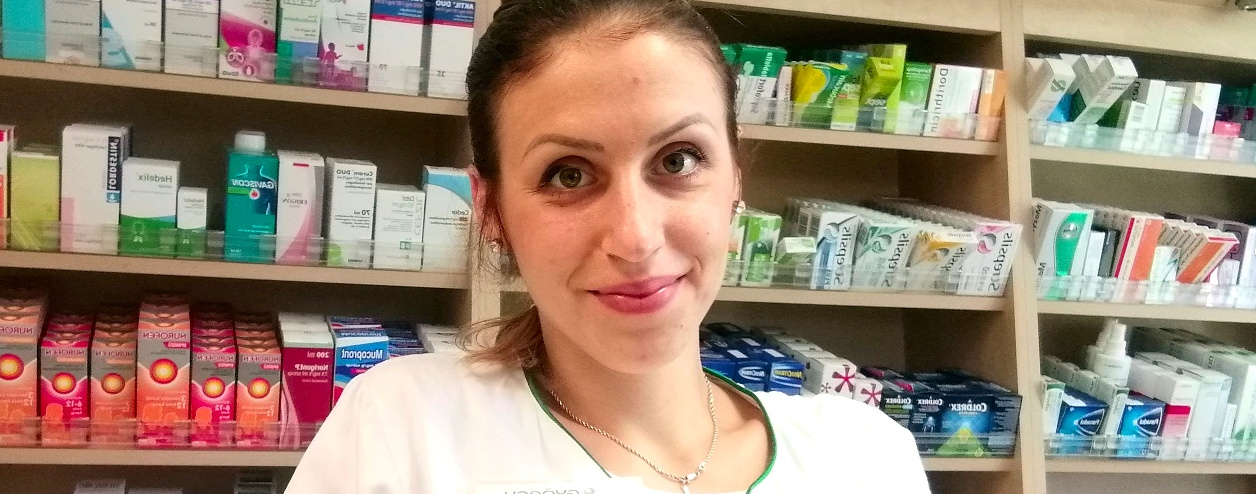News
One degree, thousands of opportunities – there are many career paths for pharmacy students in Pécs
Friday, 16 April, 2021
Self-employment, drug development and manufacturing, active participation in hospital patient care, scientific work: young pharmacists can choose from a range of options to pursue a career path that suits their interests. Former students of the Faculty of Pharmacy of the University of Pécs, who have had successful careers in their chosen field, shared their experiences with us.
Written by Miklós Stemler
 In some ways a straight path led Dr Sára Merczel to return to Kaposvár, the place where she grew up, after graduating as a pharmacist in Pécs, and to become the head specialist of the Institutional Pharmacy of the Somogy County Kaposi Mór Teaching Hospital, which is responsible for the care of 400,000 people. On the other hand, she had to make many decisions and choose from multiple choices, just like Dr Péter Diós - head of the Hormones Department of the pharmaceutical company Richter Gedeon, and like Dr András Zergényi - manager of the Hársfa pharmacy in Marcali. What the three life paths have in common is that all three of them were guided by their love of chemistry and biology for pharmacy training in Pécs, and that during the years they spent there they realized how versatile their education is - if they pursue their goals with sufficient determination and diligence.
In some ways a straight path led Dr Sára Merczel to return to Kaposvár, the place where she grew up, after graduating as a pharmacist in Pécs, and to become the head specialist of the Institutional Pharmacy of the Somogy County Kaposi Mór Teaching Hospital, which is responsible for the care of 400,000 people. On the other hand, she had to make many decisions and choose from multiple choices, just like Dr Péter Diós - head of the Hormones Department of the pharmaceutical company Richter Gedeon, and like Dr András Zergényi - manager of the Hársfa pharmacy in Marcali. What the three life paths have in common is that all three of them were guided by their love of chemistry and biology for pharmacy training in Pécs, and that during the years they spent there they realized how versatile their education is - if they pursue their goals with sufficient determination and diligence.
“Out of the trainings as a doctor, pharmacist, chemist, the pharmacist seemed to be the right middle ground for me, although at that time, of course, I still had naive ideas about what a pharmacist was doing: providing people with the medicines they needed to recover. Then I realized that the reality is much more complicated, although it really is about that,” Sára Merczel recalls the period before her career choice.
Péter Diós, oriented himself towards a career as a civil engineer as a child, but became fascinated by biology and chemistry in high school, and there was no turning back: only a career as a pharmacist, doctor or possibly a chemist could be considered. “Eventually I got accepted to the pharmacy training, which in retrospect I consider lucky,” he says.
At first glance, András Zergényi’s career choice seems the clearest, as a member of a family of doctors, dentists and pharmacists, it seemed self-evident that he would choose a career in health care, but before applying he would have turned to economics and law. “After consulting with my family, I finally decided which area could best be combined with my efforts in this direction. It clearly became pharmacy: I felt like I could be my own master in this position the most.”
The university years then nuanced the image of pharmacy to a great extent. “It was on my first pharmacy class in my second year when I was struck by how many opportunities there really are and how diverse this field is, how many directions to take, while of course the basic aspects are the same everywhere: quality, efficacy, safety and economy. We are all working on this, no matter which direction we choose,” says Sára Merczel. With two specialist exams behind her, she decided to pursue a career in hospital-clinical pharmacy, as she can take part in the widespread hospital patient care as well as the public drug dispensing in hospitals, while being able to deal with people and science at the same time.
 Péter Diós was fascinated by research during his university years. “I slowly realized that pharmacy training could open so many paths for me. At the time of graduation, I could have chosen from many disciplines of which pharmaceutical technology was closest to me. After graduation, I became a specialist pharmacist - intern, then assistant professor and PhD doctoral student, and in Pécs I got to know creativity and the freedom of research so much that in addition to work, it became my hobby.” He broke away from the university somewhat, after moving to Budapest partly for family reasons and moving to the Gedeon Richter Pharmaceutical Factory, but his interest in research remained.
Péter Diós was fascinated by research during his university years. “I slowly realized that pharmacy training could open so many paths for me. At the time of graduation, I could have chosen from many disciplines of which pharmaceutical technology was closest to me. After graduation, I became a specialist pharmacist - intern, then assistant professor and PhD doctoral student, and in Pécs I got to know creativity and the freedom of research so much that in addition to work, it became my hobby.” He broke away from the university somewhat, after moving to Budapest partly for family reasons and moving to the Gedeon Richter Pharmaceutical Factory, but his interest in research remained.
András Zergényi was already consciously preparing to start his own business during the university years. “When I was in my fourth year, I started a bachelor’s degree in economics as a correspondent student and then, after graduating, continued into a master’s degree. By that time, it had already been outlined that since we had a family interest in a pharmacy, it would be advisable to capitalize on the combination of pharmaceutical and economic knowledge, and this best reflected my aspiration to be my own master. ” Thus, in early 2019, I took over the Hársfa pharmacy in Marcali.
As the hospital’s head specialist pharmacist, Sára Merczel plays a key role in the pharmaceutical supply of the Kaposi Mór Training Hospital, as well as in the public supply and production of medicines. As she says, it is this diversity, the presence in several areas at once, that gives the challenge and beauty of her work. “I also opted for this option because I didn’t have to make a final decision on which path to commit to: here I can be present in drug supply, patient care and scientific work at the same time. Three in one if you like”.
Péter Diós, who began his work as production manager in the pharmaceutical company Richter Gedeon as head of the Hormone Department, has to monitor several sub-areas (e.g. engineering, logistics, quality assurance, product development) at the same time. Although, his work would not necessarily require a scientific degree, he benefits from the experience and mindset gained during research each day. “It was a huge advantage to bring specific pharmaceutical technology knowledge from the university with me, and although the PhD does not have a direct impact on my current job, the experience and knowledge gained there is a great relief in solving any problem that may arise. In many cases, I can approach problems from new perspectives. Furthermore, my research experience in this large-scale, industrial environment, in scaling up tasks is a significant advantage for me.”
 András Zergényi, who runs his own pharmacy and is constantly developing it, also benefits greatly from the knowledge he acquired at the university, only a part of which comes from pharmaceutical training - albeit a vital part. “The career as a pharmacist can be combined with a lot of others, be it economics, law, or IT, and it’s getting more and more emphasized. For my part, I consider marketing and branding to be very important, for example, but we also deal with the development of healthcare software. Although, there is a different image of pharmacies in the public consciousness, for me it is also a field of experimentation and creation, where a sufficiently enterprising and trained pharmacist can try and take advantage of many innovations.”
András Zergényi, who runs his own pharmacy and is constantly developing it, also benefits greatly from the knowledge he acquired at the university, only a part of which comes from pharmaceutical training - albeit a vital part. “The career as a pharmacist can be combined with a lot of others, be it economics, law, or IT, and it’s getting more and more emphasized. For my part, I consider marketing and branding to be very important, for example, but we also deal with the development of healthcare software. Although, there is a different image of pharmacies in the public consciousness, for me it is also a field of experimentation and creation, where a sufficiently enterprising and trained pharmacist can try and take advantage of many innovations.”
All three former pharmacy students from Pécs, who have travelled different paths, are satisfied with their decision. “This job brings a lot of variety and challenge every single day, and in addition to handling medication, I also have the opportunity to care for patients, do scientific work, and also participate in education, which I consider very important. At this moment, I can’t imagine a job that offers more satisfaction and joy than this one. I love being a hospital pharmacist!” says Sára Merczel.
Péter Diós thinks similarly about his work. “Pharmaceutical manufacturing and development are an extremely inspiring and diverse medium where we can try ourselves in many different areas. There are countless opportunities for pharmacists here, whether it is drug registration, quality assurance or design.”
András Zergényi enjoys decision-making responsibility and continuous feedback the most. “In this work, there are quick results in each of our decisions, and it is obviously a great pleasure to be successful. Positive feedback is important to me - of course, not all decisions are made well, and the consequences can affect others. It is important to take responsibility and to manage the pressure that comes with it.”
According to Péter Diós, one of the main attractions of the pharmaceutical profession is that almost all personality types can find the right place for themselves. “If someone enjoys dealing with people, they have the opportunity to become a pharmacist or a medical sales representative, but there is also the possibility to do research and development work in a laboratory environment, as well as to do office work such as registration and quality assurance. You could say that everyone can choose a career that suits their personality, and that is a huge benefit of this degree.”
According to András Zergényi, pharmacy can also be a field of self-realization. “A degree in pharmacy provides a very solid foundation and building on it to continue your education in many areas. It is not a big problem even if something goes wrong, as we have the certain knowledge that is always needed - a good example of this is the epidemic that is now raging. For me, this is the beauty of being a pharmacist, the opportunity and the freedom to try.”


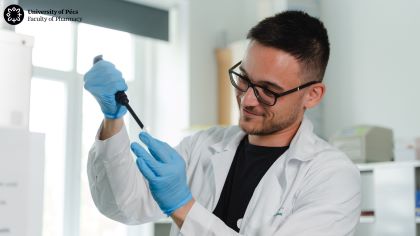

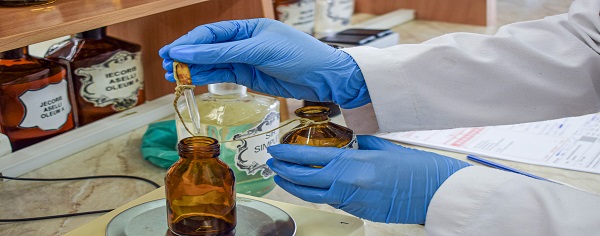


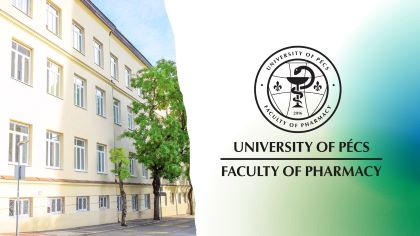
jpg.jpg)
